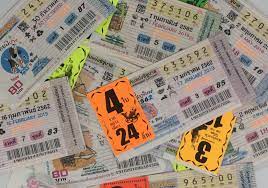What Is a Lottery pengeluaran hk?

A lottery pengeluaran hk is a form of gambling that involves a public drawing of lots to determine who owns a particular item or property. The practice is recorded in many ancient documents, but it only became popular in Europe during the fifteenth and sixteenth centuries. The first lottery in the United States was held in 1612 by King James I of England, which was created to provide funds to the new settlement of Jamestown, Virginia. Since that time, the lottery has become an important source of funding for both private and public organizations. It has helped to support wars, public works projects, colleges, and other projects.
There are many varieties of lottery games. The earliest games were raffles, which involved drawing lots and waiting for weeks to find out if you won. These passive drawing games were the most common form of lottery in 1973, but had completely disappeared by 1997. Since then, consumers have demanded more exciting games. Today’s most popular types of lottery games are outlined in Table 7.1.
A recent lottery pengeluaran hk case involves 23 cab drivers at Atlanta’s Hartsfield International Airport. These cabbies collectively won more than $49 million in the “Big Game” game. However, after seven other cabbies filed a lawsuit, the lottery officials froze the money. The plaintiffs claim that the man in charge of the pool kept records of the winnings in an unorganized manner.
Great Prizes When Playing Online Lotteries
Many pengeluaran hk lotteries have partnered with sports teams or other companies to offer prizes. In the early 2000s, several states offered prizes like Harley-Davidson motorcycles. Licensed brand names have also become popular in lotteries. Many of these brand-name promotions feature popular celebrities, sports figures, and cartoon characters. The companies that sponsor these promotions reap benefits from product exposure, advertising, and more.
According to the North American Association of State and Provincial Lotteries, U.S. lottery sales in FY 2006 totaled $56.4 billion, an increase of 9% from FY 2005. These numbers are the highest among all state lotteries. The New York lottery alone has a revenue of nearly $10 billion. In addition, it has the highest profit margin among all state lotteries in the United States. These numbers show that lottery profits are a growing industry.
Besides the economic benefits, lottery supporters also argue that it provides the state with a convenient means to increase revenue. Moreover, lottery proceeds benefit small businesses and larger companies that participate in advertising and marketing campaigns. The lottery also offers cheap entertainment for those who play it. But it does have its drawbacks. It is important to consider these reasons before deciding to continue the lottery in your state.
Although lottery prizes are based on statistical analysis, lottery winnings are subject to federal taxes if they exceed a certain value. Therefore, winning a lottery prize over $600 will be reported to the Internal Revenue Service. As a result, lottery winners must account for these taxes when calculating their tax liability.